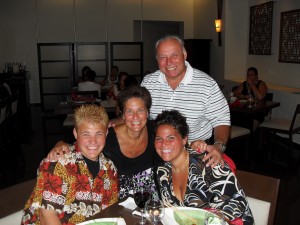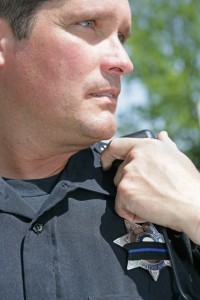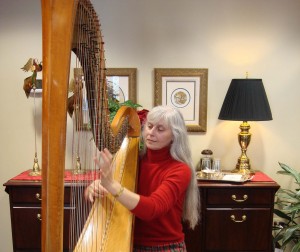After a long hiatus, we’re back to posting regularly on our blog! We’ve been very busy over the past year and can’t wait to share what we’ve been doing with our readers; but first, we want to share some important information about an issue that affects many of the clients who come into our office, and something we’d like to help prevent: When dementia hits the pocketbook. We hope you find this information helpful, and please come back next week to read about the exciting things we’ve been doing in our firm and in the community!
The first signs of
Alzheimer’s or dementia are not always easy to see. Families may go months or more before they realize that a loved one is forgetting a few too many things or confused about more than just the new DVD player. One of the
first signs of Alzheimer’s or dementia is also one of the most dangerous—a growing inability to understand and handle financial matters. Elder care lawyers often hear stories that reveal that one of the first signs of dementia is an inability to understand money, personal finances, and contracts. Client families need to take steps to protect the family finances when a loved one grows vulnerable to financial manipulation. There is no legal standard for ‘vulnerability,’ but vulnerable individuals are easy prey for scam artists and just plain poor financial decision-making. One novel idea used by a family to stop the loss of thousands of dollars being spent by a loved one to obtain supposed lottery “winnings” was to limit the affected person’s checking account balance. In addition, family members actively created a lottery game to distract and amuse their loved one. It worked!
If family members live far away, some of the first people likely to notice these telltale signs of dementia are the senior’s own advisors—doctor, lawyer, or financial planner. Unfortunately, these advisors often don’t always have the ability to take action. Both doctors and lawyers, for example, are bound by patient or client privilege; even if they want to inform the family of their suspicions, they may not be able to. Recent changes to Illinois State Bar Association Code of Ethics do allow an attorney to take action to protect a client when there is a reasonable belief that the client has become incapacitated and is in danger. The
American Medical Association also is not insensible to this issue, and has guidelines for dealing with patients who show signs of incapacity. Unfortunately, doctors are under pressure to spend minimal amounts of time with patients. Many people are able to ‘fake it’ during a short interview by doctors, lawyers, and financial advisors. It is extremely important that the healthy spouse and/or responsible adult child get actively involved in pointing out to professionals any abnormal acts of vulnerability. This may mean doing something that feels very uncomfortable, but is absolutely critical to get the protection needed. No one will ever know what the family is seeing and experiencing at home unless you tell the story to your trusted advisors and friends. It is dangerous to keep your fears a secret. Almost everyone has a loved one who has been or will be affected by the progressive loss of decision-making capacity.
What can families do to recognize the signs of dementia and prevent the financial fallout that often results? First of all, it should be a topic of family conversation early and often, long before Mom or Dad is at risk. Talk about the possibility and how it should be handled.
Geriatric care managers and elder care lawyers welcome input from the entire family of their clients. Familiarity with the entire family gives more options if signs of dementia do start to appear, and an atmosphere of open communication can go a long way toward preventing suspicion and family fights later on. Attorneys need to know who among the family the client believes are their ‘honest and reliable adult children’ who may be able to safeguard family finances and provide ongoing care and attention to the situation. Care managers will recommend how best to combine family resources with professional services. Experienced elder care attorneys and care managers can help the family to plan for future financial and health care needs. Most families underestimate both the financial impact, emotional burden, and care needs that will be required due to the dementia of a beloved member of the family.
Once a family has discussed options for the future and who might be the best person to take control of Mom or Dad’s finances in the event that they are unable, then an elder care attorney can assist them with the
development of appropriate legal documents and Power of Attorney for financial decision-making. These documents give a nominated agent the power to make financial decisions for the affected loved one. The time to work on these plans is while the forgetful one still has sufficient capacity to make a Will, Trust, Power of Attorney for Health Care, Power of Attorney for Property, and any other estate protection plans. Lawyers trained in this area of planning work to make sure that the healthy spouse is not excessively impoverished by long term care expenses.
The onset of Alzheimer’s or dementia affects the entire family, and should be discussed as an entire family.







